Launching or scaling a coffee machine business—and shipping units globally—can be a highly rewarding venture. But international fulfillment for heavy, delicate, and electrically powered products like coffee machines is far from trivial. As a
third-party logistics (3PL) provider based in China,
SendFromChina is uniquely positioned to help brands navigate the complexities of sourcing, exporting, and delivering coffee machines across borders. Here, we lay out a comprehensive, step-by-step guide for fulfilling coffee machines worldwide, covering compliance, transport modes, customs, and risk management.
1. Why Shipping Coffee Machines Is Special
Shipping coffee machines isn’t like shipping T-shirts or
books. These are complex, often heavy, and fragile electrical appliances that deserve extra care—and attention to compliance. If you’re a manufacturer, an e-commerce retailer, or a café equipment brand looking to expand globally, understanding the unique logistics of coffee machines is essential.
Key reasons why shipping coffee machines is special
Fragility and Weight
Many coffee machines—especially espresso machines—are built with delicate components: glass water reservoirs, heating boilers, precision sensors, and heavy metal parts. They can be surprisingly heavy, yet shock-sensitive. Inexperienced packaging or rough handling can lead to damage or misalignment.
Regulatory & Certification Requirements
Coffee machines are electrical appliances, meaning they must comply with safety and electrical certifications in different target markets. For example, in the European Union, imported coffee equipment may require CE marking, RoHS certification, and food-contact material compliance.
Battery / Power Considerations
Some modern coffee machines incorporate lithium-ion batteries (for portable, smart devices), or other energy storage. Lithium batteries are highly regulated for transport. For example, U.S. law requires careful packaging, UN-number labels (like UN 3481 for batteries contained in equipment), and weight limits.
The U.S. PHMSA lithium-battery guide is explicit: when shipped by air, these batteries often must be at a state of charge not exceeding 30% capacity.
Customs & Import Compliance
Coffee machines are not just simple consumer goods; depending on the destination, there may be import duties, technical or electrical compliance checks, and even food-safety regulations (if parts touch consumables).
Insurance & Risk
Because of their value and fragility, coffee machines present higher risk
in transit. You need a freight plan that protects against damage, loss, or mishandling, and you may want to insure the shipment appropriately.
Logistical Complexity
The size, weight, and shape of coffee machines may make them unsuitable for standard parcel carriers. Larger or heavier machines may require LTL (less-than-truckload), FCL (full container load), or even air freight. Conversely, smaller, compact machines may fit in parcel, but only if packed right.
All of these factors elevate complexity—and cost. But with proper planning, you can mitigate risk and successfully scale your global coffee machine business.
2. Step-by-Step Guide to Fulfilling Coffee Machines Globally
Here is a pragmatic, step-by-step roadmap to help you fulfill coffee machines across international markets responsibly, safely, and cost-effectively.
Step 1: Product Preparation & Documentation
Product Specification & Certification: Before you ship, make sure your machines have all required certifications for the target market(s): CE mark, RoHS, FCC, food-contact material safety, etc.
Technical Files: Prepare technical documentation that describes the machine’s voltage, power consumption, battery (if any), control system, and parts. These documents will be essential for customs, safety checks, or buyer requests.
Dangerous Goods Assessment: If the machine includes lithium batteries or other regulated components, determine its UN classification (e.g., UN 3481 for lithium-ion in equipment) and ensure compliance with applicable regulations (e.g., IATA, ADR, IMDG).
Step 2: Packaging Design & Testing
Carefully design packaging for protection, compliance, and cost-efficiency.
Inner Packaging: Use foam inserts, custom-molded polystyrene, or corrugated partitions to immobilize parts like reservoirs, tubing, and metallic boiler. The goal is to limit internal movement during transit.
Outer Packaging: Use strong, rigid outer boxes or crates. For items with batteries, U.S. regulations require the outer package to withstand a 1.2-meter drop test without damage or short-circuiting.
Labeling: Mark all packages clearly. If batteries are present, you may need a Lithium Battery Label or indicate the UN number (e.g., UN 3481).
Stacking & Palletization: For heavier machines, palletize them. Stack only as many as the packaging can safely support. Use shrink wrap, banding, or corner protectors to stabilize shipments.
Step 3: Choose Your Shipping Method
Based on size, weight, urgency, and budget, decide on the best freight method.
Parcel / Courier: Suitable for small, compact machines. Ideal for light weight and fast delivery. But if the machine has batteries, you may need a dangerous goods shipment.
LTL Freight (Road): Good for bulky or heavy units. Cost-effective for shipments that don’t fill an entire truck.
Air Freight: Fastest for long distances. For battery-powered machines, follow IATA / ICAO rules (e.g., limited state-of-charge, class 9 labels).
Sea Freight (FCL / LCL): Economical for large pallets, multiple units, or bulk orders. IMDG regulations may apply if batteries are present.
Step 4: Customs & Compliance Handling
HS Codes: Identify the correct Harmonized System (HS) tariff code for your coffee machines. This determines import duties and taxes.
Import Documentation: Prepare Commercial Invoice, Packing List, Certificate of Origin, and technical compliance documents (e.g., CE declaration) for customs.
Import Certifications: For some markets, you may need more than just product certification: e.g., you might need documentation proving the electrical device meets local food-contact safety, energy efficiency, or safety standards.
Duties & Taxes: Calculate potential duties, VAT, or other taxes so you can price accordingly. You may choose DAP (Delivered at Place) or
DDP (Delivered Duty Paid) incoterms depending on your business model and risk appetite.
Step 5: Insurance & Risk Mitigation
Insure Your Shipment: Given the value and fragility, insure the cargo for full value. Consider all-risk marine or air cargo insurance.
Quality Control (QC) & Pre-Shipment Inspection: Before loading, conduct
QC inspections. Make sure machines are fully functional, properly boxed, and documented.
Tracking & Visibility: Use freight forwarders that offer real-time tracking, so you and your customers can see where the goods are.
Step 6: Last Mile Delivery
Local Warehousing / Fulfillment: To speed delivery and
reduce shipping cost, consider a local warehouse in your target markets. Use a
3PL partner to fulfill from your regional hub.
Distribution & Delivery: Choose carriers for local delivery (courier, parcel, or LTL) based on package size and weight. For bulky machines, LTL to regional partners then final-mile delivery might be most efficient.
Returns & After-Sales: Set up a reverse logistics process. Returns of damaged or defective machines are particularly common with fragile equipment—be ready with service centers, repair partners, or a returns protocol.
3. Key Challenges & Solutions for Coffee Machine Fulfillment
Shipping coffee machines globally comes with unique hurdles. Here are the top challenges and how to handle them.
Challenge 1: Regulatory Complexity (especially for batteries)
Problem: Modern coffee machines may contain lithium-ion batteries (for remote or smart functions), making them
dangerous goods under many transport regulations. Lithium batteries must meet strict packaging, labeling, and testing criteria.
Solution:
Classify your battery type correctly: UN 3480, UN 3481, UN 3090, etc.
Use compliant packaging that can pass required drop tests.
Label with the correct UN numbers and hazard marks.
Follow state-of-charge rules (e.g., ≤ 30% for air cargo per PHMSA in the U.S.)
Use carriers who are certified to transport dangerous goods.
Challenge 2: Fragility & Risk of Damage
Problem: Coffee machines have delicate internal parts, and poor packaging or rough handling can lead to damage.
Solution:
Invest in custom internal packaging (foam, brackets, shock absorbers).
Use rigid outer cartons or crates.
Perform pre-shipment drop / vibration testing.
Use palletization for heavier units.
Insure for full value and track transit.
Challenge 3: Certification & Compliance Across Markets
Problem: Different regions have different requirements (e.g., CE / RoHS in EU, FCC in U.S., food-contact compliance, energy efficiency, etc.)
Solution:
Research and plan for certification early in the design phase.
Maintain documentation (technical files, test reports).
Include relevant declarations with shipments.
Consider hiring a compliance consultant for key markets.
Challenge 4: Cost and Logistics Optimization
Problem: Heavy, bulky machines cost more to ship. High freight cost can erode margins.
Solution:
Consolidate shipments into full containers (FCL) or shared LCL.
Use regional distribution (3PL) to reduce
last-mile cost.
Negotiate with freight forwarders for volume discounts.
Plan inventory forecasting to minimize frequent small shipments.
Challenge 5: Returns & After-Sales
Problem: Returns of high-value, fragile equipment are complicated and expensive.
Solution:
Build a reverse logistics plan (repair centers, regional hubs).
Offer good packaging for returns (prepaid return box, instructions).
Use local 3PL or service partners to handle repair or refurbishment.
4. Why You Should Consider Outsourcing Fulfillment to 3PL
Given these challenges, many coffee equipment brands benefit from partnering with a third-party logistics provider. Here’s why outsourcing fulfillment is often the right move.
Expertise & Infrastructure
A specialized 3PL understands the idiosyncrasies of shipping fragile, heavy, or regulated products like coffee machines. They’ll have the right packaging, warehousing, and handling capabilities.
Compliance Support
A good 3PL partner knows how to handle dangerous goods (e.g., lithium batteries), can help with labeling, documentation, and customs clearance. They can reduce compliance risk dramatically.
Cost Efficiency
Rather than building your own global distribution infrastructure, you leverage the 3PL’s existing network. That saves capex and reduces fixed costs.
Scalability
As your brand grows, a 3PL scales with you—whether you’re shipping ten machines a month or a thousand. They manage capacity, labor, and regional demand.
Speed & Customer Satisfaction
With regional warehouses, 3PLs help shorten
delivery times, reduce duties (depending on model), and improve customer service through returns or repairs.
Risk Mitigation
3PLs often have robust insurance, quality control, and reverse logistics processes already in place.
5. Why Choose SendFromChina as Your Fulfillment Partner?
Here’s why
SendFromChina is uniquely positioned to help you scale your coffee machine business globally:
Strategic Location & Global Reach
Based in China, SendFromChina is ideally located close to major coffee machine manufacturers. We provide seamless export from Chinese factories and handle end-to-end global shipping.
Specialized Packaging Solutions
We understand the fragility of coffee machines. Our team designs and sources custom packaging (foam inserts, crates, strong outer cases) to minimize damage in transit.
Dangerous Goods Expertise
We are well-versed in lithium battery regulation (UN classification, packaging, labeling) and work with experienced freight partners certified for dangerous goods transport.
Customs & Compliance Support
SendFromChina helps you navigate cross-border compliance: we assist with HS codes, CE / RoHS documentation, technical files, and import paperwork for your target markets.
Flexible Shipping Options
Whether you need parcel, LCL sea freight, FCL, or air, we provide tailored solutions. We optimize for cost, speed, and risk according to your business plan.
3PL & Warehousing
We offer warehousing and fulfillment services in key regions, which can reduce your freight cost and delivery time considerably. That helps you get closer to your customers.
Quality Control & Inspection
Before shipping, we conduct pre-shipment inspections, verify machine functionality, and ensure packing quality. That reduces returns and claims.
Reverse Logistics Support
We also help with return management, repair, and refurbishment logistics. Your customers get a smoother after-sales experience.
Transparent Pricing & Insurance
We provide clear cost breakdowns (freight, duties, insurance) so you can make informed decisions and protect your investment.
Committed Partnership
At SendFromChina, we see ourselves as your partner, not just a logistics provider. We work proactively to optimize your supply chain, minimize risks, and help you scale efficiently.
6. Conclusion
Shipping coffee machines worldwide is not trivial—but with careful planning, the right infrastructure, and a reliable logistics partner, it becomes entirely manageable. The key lies in understanding the unique nature of your product: its weight, fragility, regulatory profile, and return risks. By building a robust fulfillment strategy, leveraging a 3PL, and partnering with experts like SendFromChina, you can scale your coffee machine business globally—and deliver a high-quality experience to your customers, wherever they are.
7. FAQs
Do I need special labeling if my coffee machine has a lithium battery?
Yes. If the battery is lithium-ion, you may need to mark the package with UN-3481 or similar, include hazard class 9 labels, and follow packaging rules.
How should I package my coffee machines to minimize damage?
Use custom foam inserts or molded supports inside a strong outer box or crate, and test for drop/shock resilience.
Can SendFromChina help me with import duties and compliance?
Absolutely. We assist with HS codes, import documentation, certifications, and customs clearance.
Is sea freight safe for heavy machines?
Yes—sea freight (LCL or FCL) is cost-effective for heavy or bulk shipments, and with proper packaging, risk is manageable.
What if a customer wants to return a damaged machine from abroad?
We can support reverse logistics, repair, or refurbishment using regional warehousing or return-service partners.
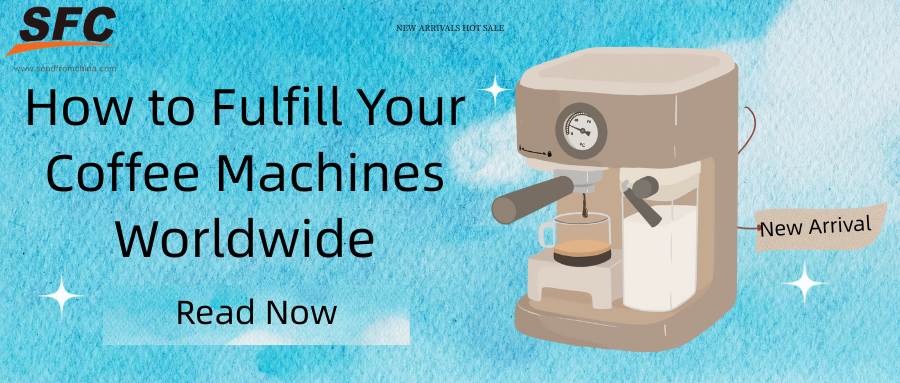
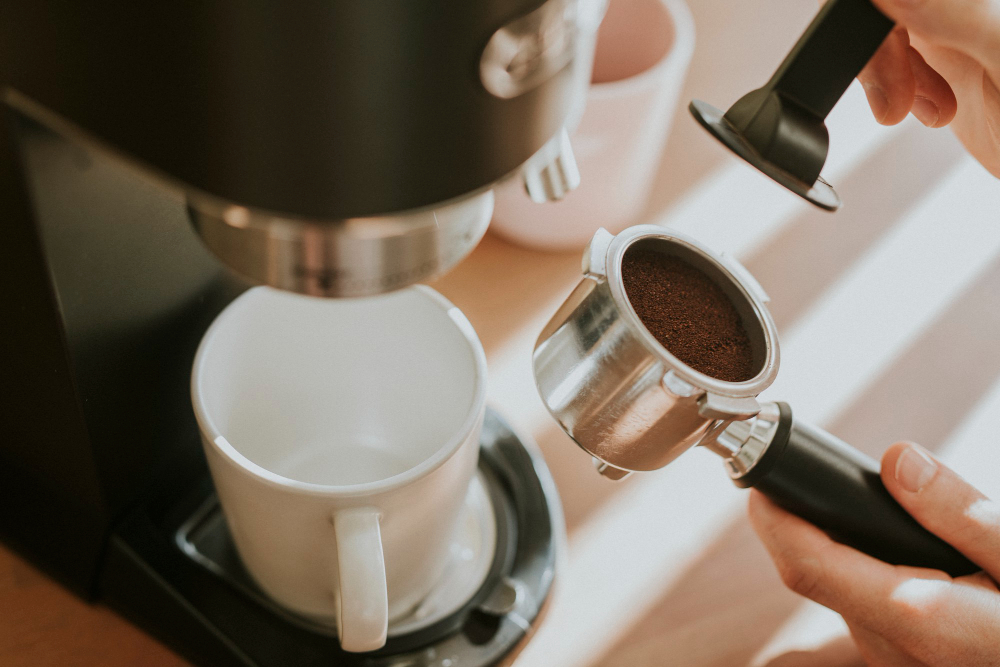
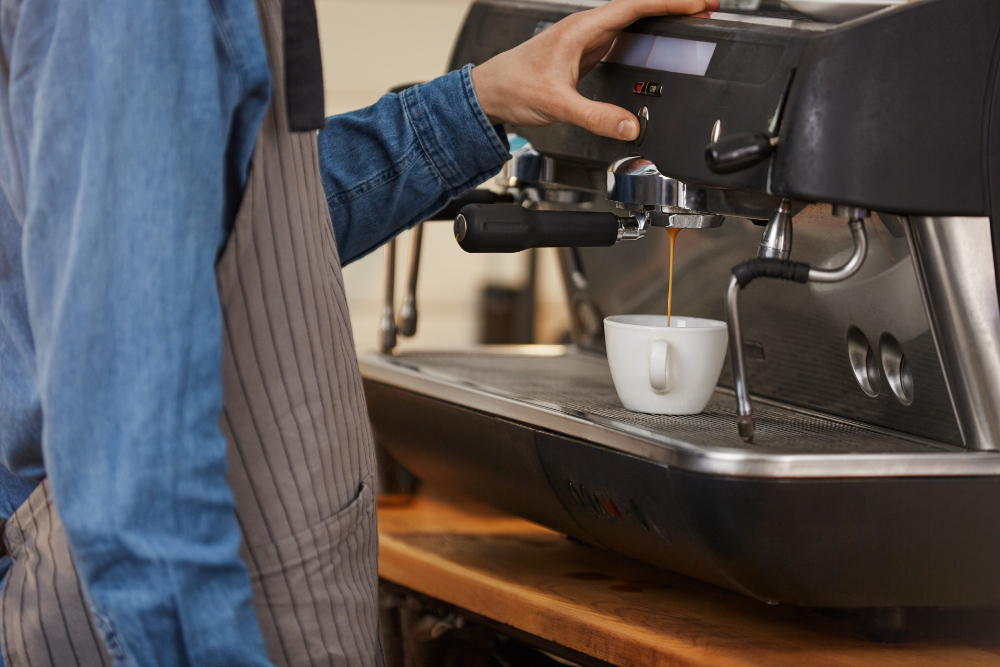
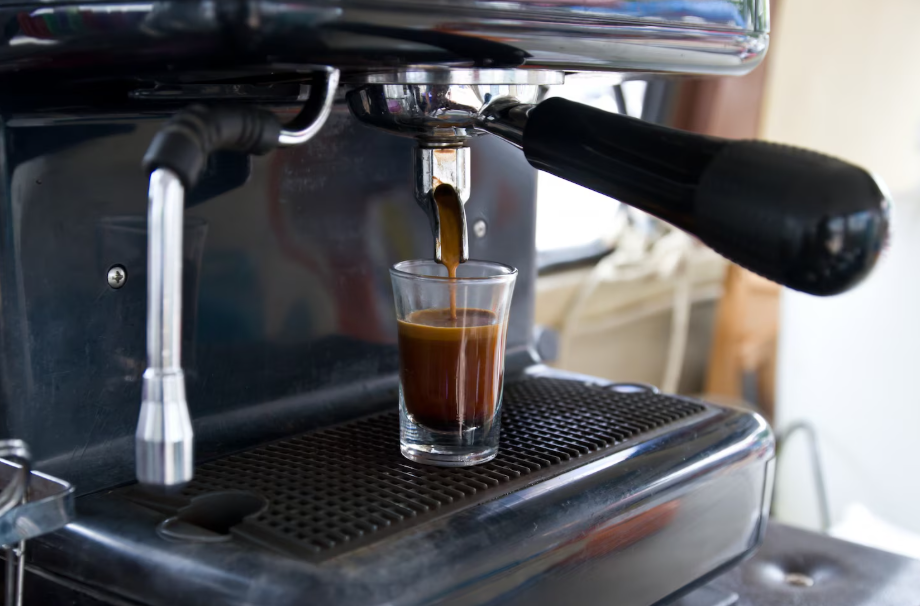
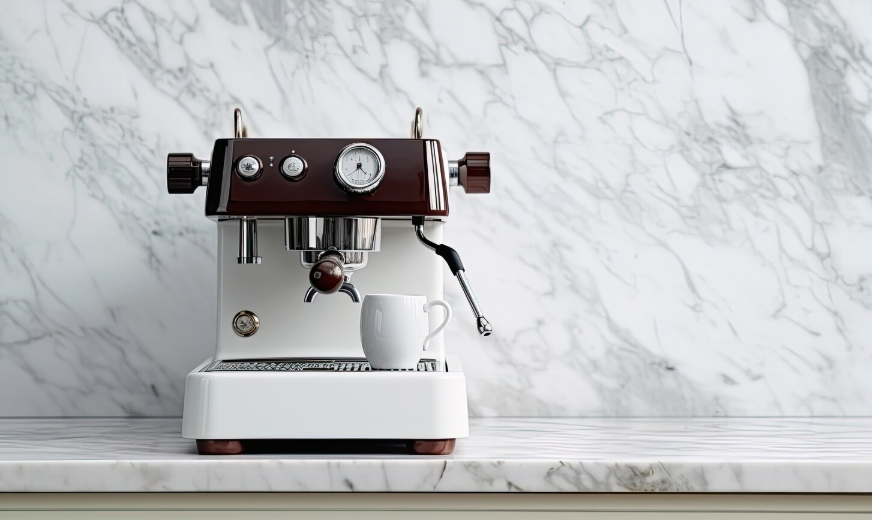

 Post Views:518
Post Views:518
 Want to know about our services, fees or receive a custom quote?
Want to know about our services, fees or receive a custom quote? Please fill out the form on the right and we will get back to you within a business day.
Please fill out the form on the right and we will get back to you within a business day.
 The more information you provide, the better our initial response
will be.
The more information you provide, the better our initial response
will be.




 TAGS:
TAGS: